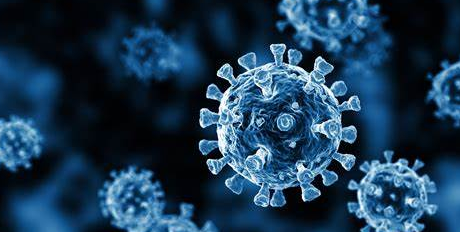Nervous System Disorder Linked to Long COVID

Recent studies have identified a nervous system disorder, known as dysautonomia, as a potential long-term effect of COVID-19. Dysautonomia involves a dysfunction of the autonomic nervous system, which controls involuntary bodily functions. This discovery adds to the growing list of complications associated with long COVID, the term used to describe lingering symptoms experienced by some patients after the acute phase of COVID-19 infection.
Understanding Dysautonomia
Definition and Function
The autonomic nervous system (ANS) regulates critical bodily functions such as heart rate, blood pressure, digestion, and temperature control. Dysautonomia occurs when there is an imbalance or malfunction in the ANS, leading to a wide range of symptoms that can significantly impact quality of life.
Symptoms
Patients with dysautonomia may experience:
- Heart Rate Abnormalities: Tachycardia (fast heart rate), bradycardia (slow heart rate), or irregular heartbeats.
- Blood Pressure Fluctuations: Unstable blood pressure, including orthostatic hypotension (a drop in blood pressure upon standing).
- Gastrointestinal Issues: Nausea, vomiting, diarrhea, or constipation.
- Temperature Regulation Problems: Excessive sweating or feeling unusually hot or cold.
- Fatigue and Weakness: Severe, persistent fatigue that is not relieved by rest.
- Cognitive Impairment: Difficulty concentrating, memory issues, and brain fog.
Link to Long COVID
Research Findings
Research suggests that COVID-19 can trigger dysautonomia in some patients. The virus is believed to cause inflammation and damage to the nervous system, potentially leading to autonomic dysfunction. Studies have found that a significant number of long COVID patients report symptoms consistent with dysautonomia.
Mechanisms
The exact mechanisms by which COVID-19 causes dysautonomia are still being studied. Potential explanations include:
- Direct Viral Invasion: The virus may directly infect nerve cells or the tissues supporting them.
- Immune-Mediated Damage: The body’s immune response to the virus may inadvertently damage the nervous system.
- Chronic Inflammation: Prolonged inflammation following the initial infection may disrupt autonomic function.
Diagnosis and Management
Diagnosis
Diagnosing dysautonomia involves a combination of patient history, physical examination, and specialized tests. Common diagnostic tools include:
- Tilt Table Test: Assesses how the patient’s body responds to changes in position.
- Heart Rate Variability Test: Measures fluctuations in heart rate to evaluate autonomic function.
- Blood Tests: Rule out other potential causes of symptoms.
Management
There is currently no cure for dysautonomia, but symptoms can be managed through a variety of approaches:
- Medications: Beta-blockers, fludrocortisone, and other drugs to stabilize heart rate and blood pressure.
- Lifestyle Changes: Increased fluid and salt intake, compression garments, and physical therapy.
- Supportive Therapies: Cognitive behavioral therapy (CBT) and counseling to help cope with chronic symptoms.
Implications for Long COVID Patients
Healthcare Needs
The recognition of dysautonomia as a potential consequence of long COVID underscores the need for comprehensive post-COVID care. Patients experiencing persistent symptoms should be evaluated for autonomic dysfunction to receive appropriate treatment.
Research and Awareness
Ongoing research is critical to understand the full impact of COVID-19 on the nervous system and to develop effective treatments for dysautonomia. Increased awareness among healthcare providers and patients can lead to earlier diagnosis and better management of this condition.
The identification of dysautonomia as a potential long-term effect of COVID-19 highlights the complex and multifaceted nature of the virus’s impact on health. As research continues, it is essential for healthcare systems to adapt and provide comprehensive care for those suffering from long COVID and its associated complications.
For more detailed information on dysautonomia and long COVID, you can visit the National Institute of Neurological Disorders and Stroke (NINDS).





